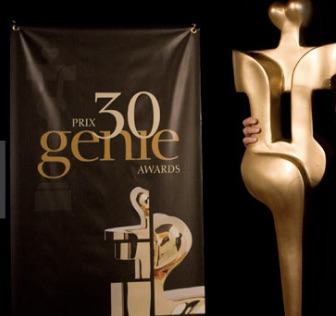Women Directors and Action Films
Time was running out to book a hotel in Toronto for the 30th Genie Awards held on April 12, 2010, at the Kool Haus Entertainment Complex located on the city waterfront.
After American Kathryn Bigelow’s Academy Award, expectations were high that the Academy of Canadian Cinema and Television would celebrate Canadian Kari Skogland as Best Director for Fifty Dead Men Walking. Since the inception of Best Director in 1929, Bigelow is the first woman to have received the distinction—breaking the notorious and infamous glass ceiling.
Bigelow is an independent filmmaker. If her DVD-released action film, The Hurt Locker, won over high-profile blockbusters, it might be that her expressive focus on a small elite of unsung Army heroes struck a chord. They save lives by “diffusing Improvised Explosive Devices according to an Ordinance with no margin of error.” The film is about annihilating— locking up—the painful emotions that come with making war.
With her action film based on the Irish Republican Army and violence-torn Belfast, Ottawa-born Kari Skogland is Bigelow’s Canadian counterpart with her nomination for Best Director, and subsequent award. “In this film [Fifty Dead Men Walking], Skogland, as Kathryn Bigelow does in The Hurt Locker, demolishes the notion that women can’t direct action.”
The change was overdue for a “notion” held by the Hollywood establishment—the powerful financing and political machine—that female directors should stay within the realm of their gender. Action films in particular make the financing process quite challenging when the director is a woman.
The situation is somewhat different in Canada where public funding—Telefilm, the Canadian Feature Film Fund (CFFF)—and tax credits have curbed the financial obstacle for Sarah Poley, Sandy Wilson, and Micheline Lanctot, who won Genies for best directing.
Women’s power was always in the shadow of American award-winning films. That Barbra Streisand should give the Academy Award to Kathryn Bigelow was evident catharsis after her 1991 film, The Prince of Tides, received seven nominations, except for best directing. Her take on the “notion” is that “it’s as if a man is allowed to feel passionate commitment about his work, and a woman is allowed to feel passionate commitment only about a man.”
Bigelow and Skogland bypassed the gender obstacle by ignoring the “notion.” They proved their point, and that of other female directors too.
First published 2010 orato.com

